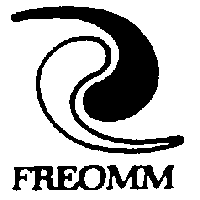
Foundation for Research and Exploration of Mind Motivation
Hugh Harmon, Ph.D. Founder Pamela Chilton, C.Ht. Director
 |
Foundation for Research and Exploration of Mind MotivationHugh Harmon, Ph.D. Founder Pamela Chilton, C.Ht. Director The Treasure Chest |
|
# "Opening Up" #by James W. Pennebaker The book summarizes 10 years of research into the connection between telling about trauma and positive changes in emotional and physical well being, and describes the only kind of writing that his studies determined can help deal with painful life experiences. Published 1990 Author Louse Desalvo wrote a book, "Vertigo", about the writing techniques she learned from Pennebakerís book and the healing she has accomplished in her life by doing so. She writes: "What I didnít know was the kind of writing I was doing-just describing events or dumping my feelings onto the page (the kind often prescribed in self-help books or writing classes) wasnít helping me. It was probably making me feel worse. Yes, I was writing about my feelings, but I wasnít linking them to the circumstances of my life. Writing sentences like "I am depressed" was worse than not writing. I wasnít re-presenting the specific circumstances linked to my feelings. I wasnít examining my emotions to learn their source, to link them to the events in my life. I was evading my lifeís narrative and its emotional truth." OUTLINE OF PENNEBAKERíS STUDY AS PRESENTED BY MS. DESALVO All students were told to write in a journal for 20 minutes a day over a four day period. The first group was instructed to write about a trivial topic - a description of their living room for instance. The second group was instructed write about their traumatic experiences. But this group was divided into three subgroups to test three different ways of writing about trauma: 1) venting emotions only; 2) write about what happened only; 3) write about events and emotions at the same time. The students in this last subgroup were instructed to write about the most upsetting experiences of their lives. They were not to worry about correctness, but to represent; i.e. re-present, their deepest emotions and thoughts and to connect them to the event. Many wept while writing their stories. One writer wrote of his father telling him he was divorcing his mother because things had changed after his birth. Another wrote how she hadnít picked up her toys as a child and her grandmother had tripped over them, broken her hip and died. Another wrote of being sexually molested by her grandfather - and of the shameful pleasure she felt. Others wrote of deaths, family conflicts, sexuality, alcoholism, suicide attempts, illness, injury, public humiliation. Many in this group reported feeling troubled and dismayed by their writing. Initially, all groups EXCEPT this one reported feeling better after writing. This group reported feeling troubled and dismayed by their writing. Pennebaker studied the physiological effects of each writing group. He monitored blood pressure, logged subsequent illnesses; studied their journals and follow up questionnaires; determined the functioning of their immune systems for four months after the writing. After four months, the health those who wrote only about superficial topics, only about events (without describing feelings), only about feelings (without linking them to the events that caused them) was about the same or somewhat worse than before. The physical, mental, and emotional health of those who wrote about trauma by linking events and feeling markedly improved. This occurred with only 20 minutesí daily writing over a four day period. Edward J. Murray, Ph.D. in a 1991 New York Times article wrote that follow-up research showed this kind of writing seems to produce as much therapeutic benefit as sessions with a psychotherapist. Writing in this way seems to discharge complex pent-up feelings, providing a catharsis. It also permits reflections upon the eventís significance so that insight and wisdom are attained. A later study examining brain-wave activity found that there was a congruence in brain-wave activity between the left and right hemispheres, indicated that while people were doing this kind of writing, emotional and linguistic material was being processed and integrated simultaneously. Other studies established that writers linking traumatic events with feelings had more T lymphocyte activity than did a control groupl that their bodies were more able to fight infection (including antibody response to Epstein-Barr virus and the hepatitis B vaccination)than before writing; that their heart rates lowered; that they were in a more relaxed physiological state. Joshua Smyth, writing in the Journal of the American Medical Association reported on a study in which the symptoms of people with asthma and rheumatoid arthritis abated significantly after doing this kind of writing. Those who wrote for 20 minutes a day for three consecutive days had greater reductions in the symptoms of their illness four months later (as determined by physicians unaware of the study) than did a control group writing only about events. Pennebaker theorized inhibiting traumatic narratives is stressful and gradually undermines the bodyís immune system. Many researchers have observed that survivors of trauma such as childhood sexual abuse, rape, the accidental death or suicide of loved ones who do not discuss these events develop more major illnesses than those who do speak of them and express their feelings about them. OUR SUGGESTIONS FOR THE WRITING
Foundation For Research & Exploration of Mind Motivation (FREOMM) Dedicated To Discovery, Demonstration, & Dissemination of Knowledge of Mind, Body, Spirit & Light (800) 403-4325 (760-772-6628) www.odysseyofthesoul.org odyssey@odysseyofthesoul.org |
|
Email the authors at odyssey at odysseyofthesoul.org (Replace the at with @.)
This page and all contents are copyright by Pamela Chilton 2001.
All Rights Reserved.